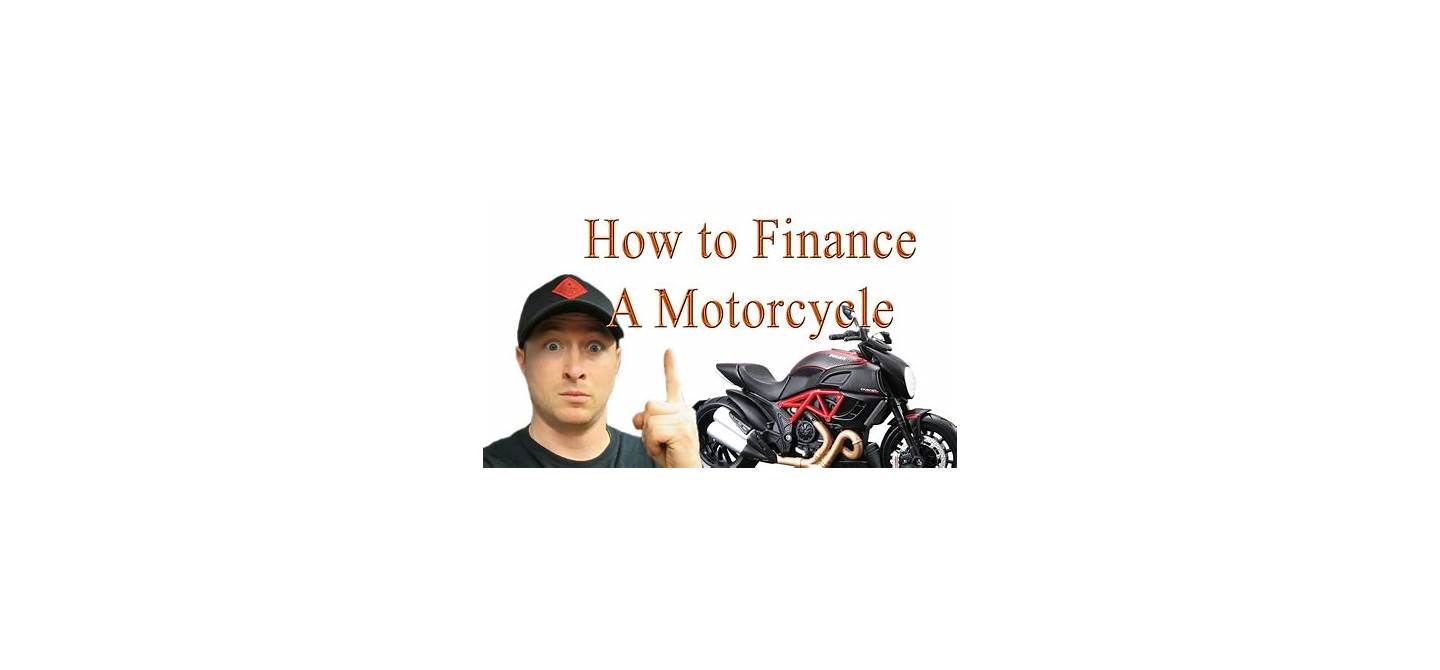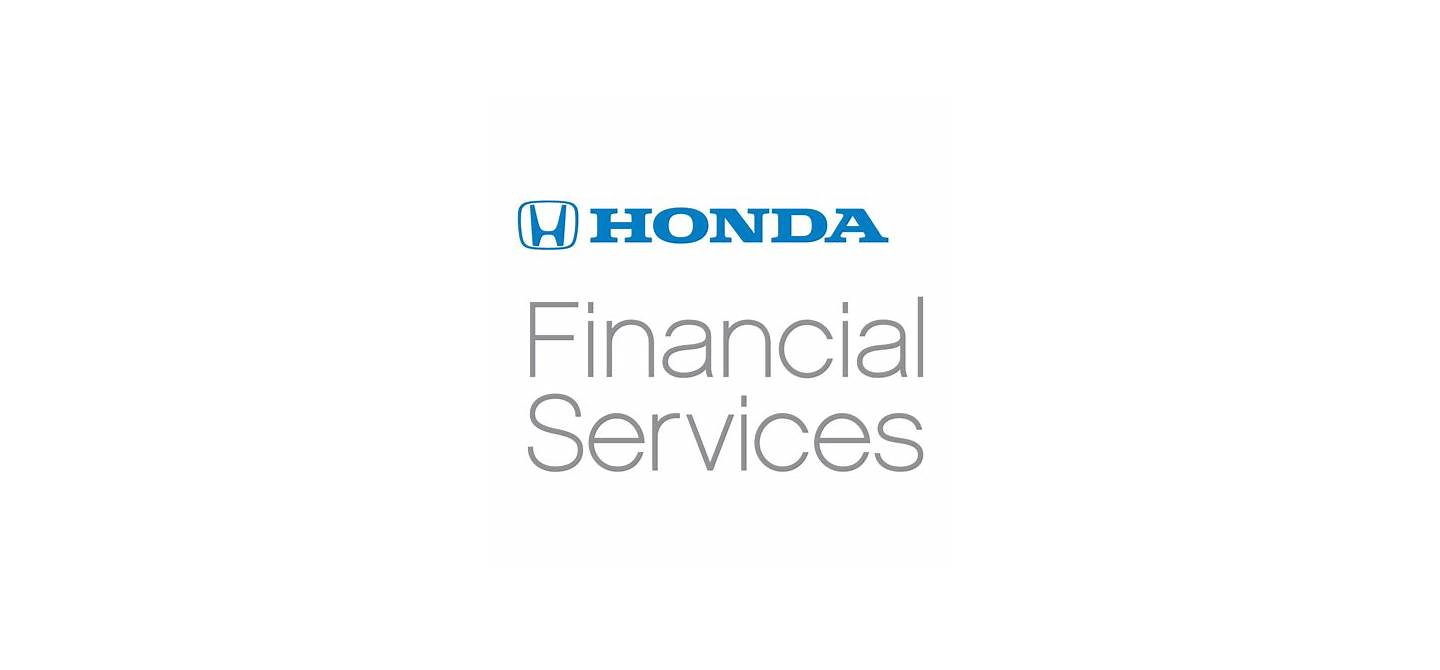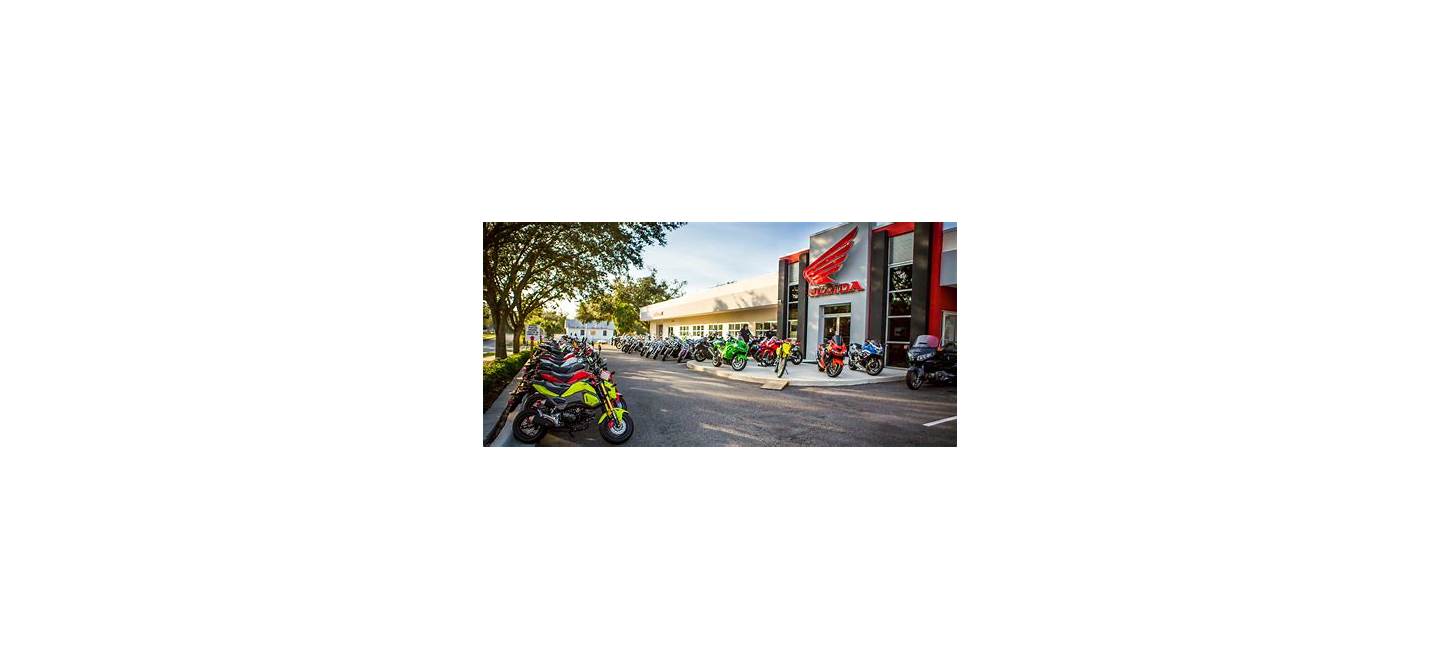Honda's Motorcycle Financing Options

When it comes to buying a motorcycle, many people may not have the cash upfront to pay for their dream bike. Honda's Motorcycle Financing Options can help make owning a Honda motorcycle a reality.
Honda offers a few different financing programs to fit customers' needs, including:
Honda Financial Services (HFS)

Honda Financial Services is a financing program offered by Honda directly, providing loans to customers. With HFS, customers can choose from a variety of financing options, including low APR rates and flexible payment terms. HFS can finance both new and used Honda motorcycles, making it much easier for customers to afford the bike they want.
Honda Financial Services also offers a special program called the Honda Protection Plan, which provides extended warranty coverage for customers. This program can help customers save money on unexpected repairs or maintenance that may be needed down the line.
Honda Power Finance (HPF)

Honda Power Finance is another financing program offered by Honda for customers looking to purchase a Honda motorcycle. Unlike Honda Financial Services, HPF partners with multiple lending institutions to provide customers with a variety of financing options and rates to fit their needs.
HPF also offers a similar extended warranty program called the Honda Protection Plus Plan, giving customers peace of mind on the road.
Dealership Financing

Some Honda dealerships may offer their own financing programs to customers. Buying from a dealership can be an easy way to qualify for special promotions or discounts on the purchase of a Honda motorcycle, which can ultimately bring down the total cost.
Dealership financing is also a great option for customers who want to work directly with a dealership to find the perfect bike for their needs. With a dealership's expertise and knowledge of Honda motorcycles, they can help customers find the bike of their dreams while staying within their budget.
Overall, Honda's Motorcycle Financing Options provide customers with a range of programs to choose from, making it easier and more affordable to own a Honda motorcycle. With low APR rates, flexible payment terms, and extended warranty coverage, customers can ride with peace of mind knowing they made a smart investment in their dream bike.
Requirements for Honda Motorcycle Financing
Buying a new or used motorcycle is an exciting experience, and Honda offers various financing options to help you make your dream a reality. However, before you can apply for financing, you must meet certain eligibility requirements.
1. Credit Score
Your credit score is an essential factor that lenders use to determine your creditworthiness and evaluate the risk of lending you money. The higher your credit score, the easier it is to get approved for financing, and the better rates and terms you may receive.
If you have a good credit score, you may qualify for Honda's promotional financing deals, such as 0% APR for a limited time. However, if you have poor or no credit, you may need to consider other financing options or try to improve your credit score before applying for Honda motorcycle financing.
2. Income and Employment
Your income and employment status are another critical factor that lenders use to determine your ability to repay the loan. Honda requires that you have a stable source of income and proof of employment, such as payslips, tax returns, or employer verification.
Most lenders may require a minimum income threshold to qualify for financing, which may vary depending on your credit score, the loan amount, and other factors. However, having a higher income may increase your chances of getting approved and may allow you to qualify for better rates and terms.
If you are self-employed or have irregular income, you may need to provide additional documentation, such as bank statements, to prove your income and financial stability.
3. Age and Residency
Honda financing is available to U.S. citizens or legal residents who are at least 18 years old, depending on state laws. If you are under 18, you may need a co-signer, such as a parent or guardian, to apply for financing.
If you are a non-U.S. citizen, you may still be eligible for Honda financing if you have a valid visa, a Social Security number or Individual Taxpayer Identification Number (ITIN), and meet other eligibility criteria.
4. Down Payment and Loan Term
The amount of down payment and loan term will also affect your eligibility for Honda motorcycle financing. In general, lenders may require a down payment of at least 10% or more of the motorcycle's purchase price to qualify for financing.
The loan term refers to the length of time you have to repay the loan, which may range from 12 months to 84 months or more, depending on the loan amount, your credit score, and other factors. Keep in mind that longer loan terms may result in lower monthly payments, but may also cost you more in interest over the life of the loan.
To increase your chances of getting approved for financing and qualify for the best rates and terms, try to save for a larger down payment and choose a loan term that fits your budget and financial goals.
In conclusion, before applying for Honda motorcycle financing, make sure you meet the eligibility requirements, such as having a good credit score, stable income and employment, and meeting age and residency requirements. You should also consider your down payment and loan term options to choose the best financing option that works best for you.
Loan Terms and Conditions for Honda Motorcycles
Are you looking to finance a Honda motorcycle? Whether you're eyeing a sport bike, cruiser, or touring model, Honda has plenty of options to suit your needs and preferences. To help you make an informed decision, we've outlined some of the key terms and conditions you should be aware of before applying for a loan.
Loan Rates
Before applying for a loan, it's important to compare loan rates and terms from multiple lenders to ensure you're getting the best deal. Depending on your credit score and other factors, you may be eligible for a lower interest rate, which can save you hundreds or even thousands of dollars over the life of your loan. The average interest rate for a Honda motorcycle loan is around 6% to 7%, but rates may vary depending on your lender and location.
Loan Terms
Loan terms refer to the length of your loan agreement, typically measured in months. The longer your loan term, the lower your monthly payments will be, but the higher your total interest costs will be. Honda motorcycle loans often range from 24 to 72 months, depending on the lender and loan amount. It's important to choose a loan term that fits your budget and financial goals without overextending yourself or paying unnecessary interest.
Loan Amount
The loan amount, or principal, is the total amount you're borrowing to purchase your Honda motorcycle. The loan amount may include the cost of the motorcycle plus any taxes, registration fees, or other related expenses. Honda motorcycle loans can range from a few thousand dollars to tens of thousands of dollars, depending on the model and lender. It's important to borrow only what you need and to avoid borrowing more than you can afford to repay.
Down Payment
A down payment is the initial cash you pay upfront towards the purchase of your Honda motorcycle. Typically, lenders require a down payment of at least 10% to 20% of the total loan amount, although some may require more. Making a larger down payment can lower your monthly payments and reduce the amount of interest you'll pay over time. It can also improve your chances of getting approved for a loan if you have less-than-perfect credit.
Credit Score
Your credit score is a key factor that lenders consider when determining your eligibility for a loan and your loan terms. Your credit score is a three-digit number that ranges from 300 to 850 and reflects your creditworthiness based on your credit history. Higher credit scores indicate lower risk to lenders and may result in lower interest rates and more favorable loan terms. If you have a low credit score, you may still be able to get a Honda motorcycle loan, but you may need to pay a higher interest rate or make a larger down payment.
Loan Fees
Loan fees are the fees charged by lenders for processing your loan application and servicing your loan. Loan fees may include application fees, origination fees, prepayment fees, and late payment fees. Before applying for a Honda motorcycle loan, be sure to review the loan fees and understand how they will impact your total loan costs. Some lenders may offer no-fee loans or may be willing to negotiate lower fees.
Loan Repayment
Loan repayment refers to the process of repaying your loan principal and interest over time. Honda motorcycle loans typically require monthly payments, although some lenders may offer bi-weekly or other repayment schedules. It's important to make your loan payments on time and in full to avoid late fees, penalties, and damage to your credit score. If you're having trouble making your loan payments, contact your lender to discuss your options, which may include deferment, forbearance, or refinancing.
With these loan terms and conditions in mind, you can feel more confident about finding the right Honda motorcycle loan for your needs. Be sure to compare multiple lenders before making a decision, and don't hesitate to ask questions and negotiate terms that fit your budget and financial goals.
Pros and Cons of Financing a Honda Motorcycle
When it comes to purchasing a Honda motorcycle, financing is often necessary for many buyers. Financing can provide you with the opportunity to purchase the motorcycle you want without paying the full purchase price upfront. However, there are both pros and cons to financing a Honda motorcycle that you should consider before making your purchase decision.
Pros of Financing a Honda Motorcycle
1. Affordable Payments: One of the main benefits of financing a Honda motorcycle is that it enables buyers to make affordable monthly payments. These payments can make owning a motorcycle more accessible to anyone who cannot afford to pay for the full purchase price upfront.
2. Access to Better Models: Financing a Honda motorcycle can allow you to purchase a newer model or higher-end bike than you would be able to afford otherwise. This can help you to get the motorcycle you want without compromising on quality or performance.
3. Build Credit Score: Financing a Honda motorcycle can be an excellent way to build your credit score. As long as you make your monthly payments on time, paying off a motorcycle loan will demonstrate to lenders that you are responsible with borrowed money, ultimately resulting in a positive effect on your credit score.
4. Flexible Terms: When you finance a Honda motorcycle, you have the option to choose from a range of terms that suit your budget and lifestyle. Many lenders offer flexible terms, so you can customize your loan to fit your needs, making it more manageable for you to pay off the balance over time.
Cons of Financing a Honda Motorcycle
1. Higher Interest Rates: Financing a Honda motorcycle often comes with higher interest rates than other types of loans. This can make it more expensive overall, and you may end up paying more for the bike by the time you pay off the loan.
2. Depreciation: Honda motorcycles, like all new vehicles, start to depreciate in value as soon as you ride them off the lot. If you finance, you may end up owing more on the bike than it is worth in a few years, which can create some financial strain if you decide to sell or trade it in.
3. Commitment: Financing a Honda motorcycle is a significant financial commitment that requires your monthly payment for a fixed number of years. If you experience sudden financial difficulties or a negative change in lifestyle, you may find it challenging to keep up with the payments.
4. Potential for Negative Equity: Negative equity means that your loan balance is higher than the value of your motorcycle. This can happen if you purchase a bike you cannot afford or if you get into an accident that causes damage beyond repair. Negative equity can make it much harder to sell or trade in the bike when you want to get rid of it, leaving you with a significant financial loss.
Financing a Honda motorcycle has its pros and cons. Before making your purchase, consider these factors to ensure that it is a decision that aligns with your financial and lifestyle needs. If you decide to finance, be sure to compare interest rates and terms from multiple lenders to find the best option for you.
Alternatives to Honda Motorcycle Financing
If you're in the market for a new motorcycle, you may be considering financing options. While Honda motorcycle financing can be a great choice, it's important to explore all of your options to ensure you're getting the best deal possible. Let's take a look at some alternatives to Honda motorcycle financing that you can consider.
1. Personal Loans
A personal loan is a type of loan that can be used for any purpose, including financing a motorcycle. With a personal loan, you can borrow a lump sum of money from a bank, credit union, or online lender and repay it over a set period of time (usually two to five years) with interest.
One of the benefits of a personal loan is that you can often get a lower interest rate than you would with a traditional motorcycle loan. Additionally, you may be able to borrow more money with a personal loan, which can help you purchase a higher-end motorcycle.
However, keep in mind that personal loans typically require good credit, so if your credit score is not in good standing, you may not be approved for a loan or may be charged a higher interest rate.
2. Credit Cards
Another option for financing your motorcycle purchase is to use a credit card. If you have a credit card with a high enough credit limit, you may be able to use it to purchase your motorcycle outright. Alternatively, if you don't have a high enough credit limit, you can use multiple credit cards to finance your purchase.
One of the advantages to using a credit card is that you can often get rewards or cashback for your purchase. Additionally, if you can pay off your balance before interest starts accruing, you can avoid paying interest altogether.
However, keep in mind that credit cards often have high interest rates, so if you're not able to pay off your balance quickly, you could end up paying a significant amount in interest payments.
3. Home Equity Loans
If you own a home and have built up equity, you may be able to use a home equity loan to finance your motorcycle purchase. A home equity loan is a type of loan that uses the equity in your home as collateral. You can borrow a lump sum of money and repay it over a set period of time with interest.
One of the benefits of a home equity loan is that you can often get a lower interest rate than you would with a traditional motorcycle loan. Additionally, the interest you pay on a home equity loan is often tax-deductible, which can help you save money on taxes.
However, keep in mind that using a home equity loan to finance a motorcycle purchase means putting your home at risk. If you're unable to repay the loan, you could potentially lose your home.
4. Manufacturer Financing
In addition to Honda motorcycle financing, many motorcycle manufacturers offer their own financing options. These options may include special promotions, such as zero percent financing for a certain period of time or other incentives.
One of the benefits of manufacturer financing is that it may be easier to qualify for than bank financing. Additionally, you may be able to get a better interest rate or other incentives that you wouldn't be able to get with traditional financing.
However, keep in mind that manufacturer financing can be more expensive than other options in the long term. Ensure that you compare the terms and interest rates before settling for this option.
5. Peer-to-Peer Lending
Peer-to-peer lending is another alternative to Honda motorcycle financing. With this type of lending, you can borrow money from individual investors instead of a bank or credit union.
One of the benefits of peer-to-peer lending is that you can often get a lower interest rate than you would with a traditional loan. Additionally, the application process is often simpler and faster than with bank financing.
However, keep in mind that not all peer-to-peer lending sources are the same as some might still require good credit. You may also be charged additional fees that you wouldn't be charged with traditional financing.
Ultimately, the financing option you choose will depend on your financial situation and credit rating. However, by exploring all of your options, you can ensure that you're getting the best deal for your new motorcycle purchase. We hope this article has been helpful in guiding you through the alternatives to Honda motorcycle financing.